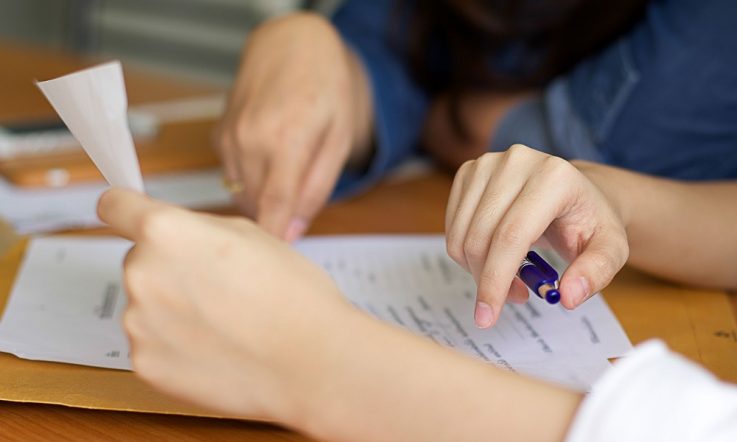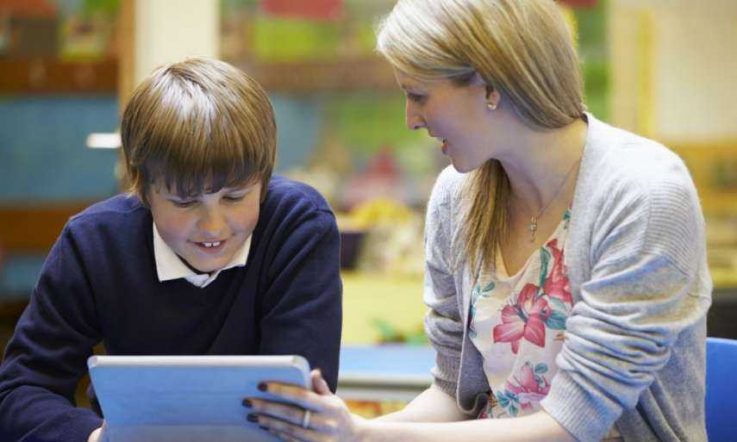Improving teacher practice by identifying individual needs, and providing support for targeted and high quality professional learning is an important part of school leaders' strategic responsibility.
At Brisbane Grammar School (BGS), all teachers develop and implement Teaching Development Plans. The plans are individual and reflect the goals that a teacher may have for the development of their practice within a broad area of focus identified as a school-level strategic priority.
The impetus for embarking on this journey was a series of professional learning workshops that staff at the Year 5-12 boys' school in Queensland participated in several years ago with Dr Helen Timperley, Professor Emeritus of Education at The University of Auckland.
Timperley is well known for her work with the Spiral of Inquiry – a model that proposes inquiry be implemented across a whole school or even a cluster of schools, where change is likely to be more powerful, rather than in single classrooms. The model is a spiral – illustrating the constant revisiting and questioning that characterises an effective inquiry – and is made up of six steps: scanning, focusing, developing a hunch, new learning, taking action and checking.
Timperley conducted professional development with the heads of department at the school. Deputy Headmaster of Staff, Ed Roper, says one of the key aims of this professional learning was to help staff move away from intuitive teaching, to intentionality in their teaching.
‘It was about making sure they understood that teaching was an evidence-based process – it's looking at what the impact was of what you did, how much you could do it better, why didn't it work, why did it work? Rather than that sort of traditional, intuitive way of teaching,' he says.
Roper says that Timperley visited the school on three occasions to meet with staff. ‘Helen asked them really good questions and tried to sharpen their thinking about what they thought the hunch was and what the impact was going to be on kids by seeking feedback and input from students. How would they make it meaningful in terms of the outcomes of the kids? So that's where it started. The Spiral of Inquiry provided a structure for their investigation,' he shares.
One of the things to come from their work with Timperley was the influence of her work on the teacher's approach to their individual development plans. Each teacher develops their plan based on their hunch about what they think might be going on with their class, or an aspect of their class.
‘They're saying, “well this is happening in my class, where do I think I can make a positive difference to kids' outcomes? My hunch is I'm doing this. Let's test that out, see what it says in the literature about what that aspect of teaching involves.”'
Lead Learners and the power of feedback
The school also established the role of Lead Learner – a colleague responsible for supporting the learning of their peers, and developing their understandings and classroom use of particular pedagogical practices.
The role of the Lead Learner is something that staff are invited to apply for. This year there are 14 in this role.
The Lead Learners work as a team, mentored and supported by the Dean of Teaching Development, as well as a former professor of education. This year, one of their aims has been to improve the way staff provide opportunities for students to receive feedback on their learning progress.
As a result, the Lead Learners were upskilled using Dylan Wiliam and Siobhan Leahy's Embedding Formative Assessment as a resource for their learning, and were encouraged to apply what they had learned in their own practice, and then with their colleagues.
‘We've been working with our Lead Learners so that they had familiarity with Dylan Wiliam's work and then helping them to collaboratively plan how they would then put that in place with their professional learning teams in the coming weeks,' Roper explains.
At BGS, every member of staff is a member of a professional learning team and these teams are all led by Lead Learners. These teams are cross-curricular and have a spread of educators from different year levels.
‘They're designed to meet regularly, they're actually in people's timetables,' Roper explains. ‘One of the aspects of a teaching development plan is that the Lead Learner of that professional learning team will, by invitation, observe a teacher's lesson. So they use that time in the timetable to plan what the observation will be about, what I want somebody to look at, particularly in my lesson, and then use that time for a post-observation conversation.'
The skills that staff have developed in how to provide students with timely, robust, and effective feedback have had a positive impact on students and their learning.
‘What we've been doing is trying to help people understand that the feedback is about the work, not necessarily the effort, so kids understand where the gaps are in their knowledge or the inefficient approaches they've made to the work so they can do it better the next time,' Roper explains.
‘And that's one of the foci that we've had, where people have been looking at assessment for learning and understanding what implications that has for the kids' next step in their learning.'
Think about the professional learning that takes place in your school. Are teachers setting individual goals for improvement or working on a whole school initiative?
How often do you engage the help of educational experts? What barriers are in place that challenge you from doing so? How could you overcome these barriers?



